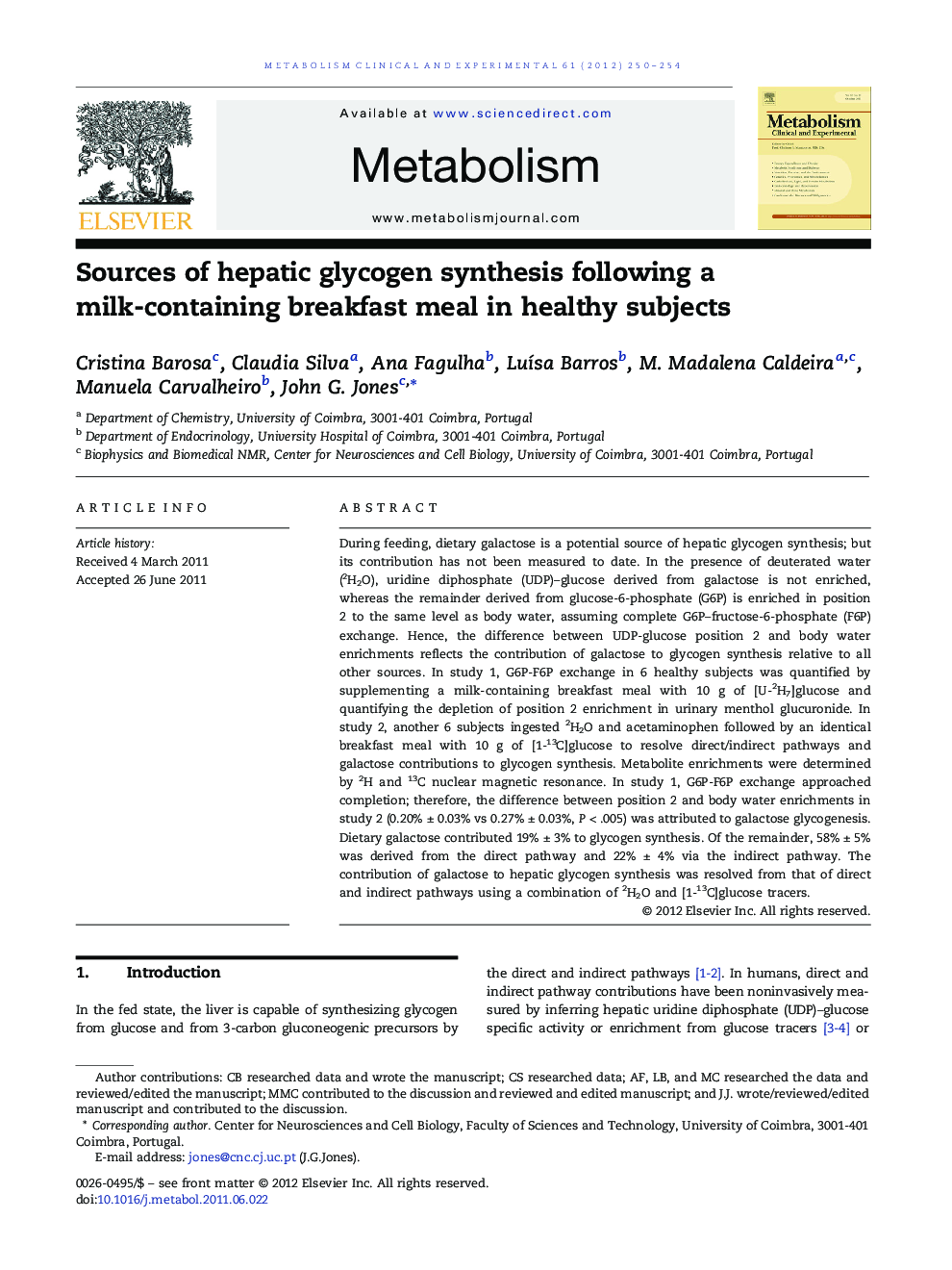| Article ID | Journal | Published Year | Pages | File Type |
|---|---|---|---|---|
| 2806297 | Metabolism | 2012 | 5 Pages |
During feeding, dietary galactose is a potential source of hepatic glycogen synthesis; but its contribution has not been measured to date. In the presence of deuterated water (2H2O), uridine diphosphate (UDP)–glucose derived from galactose is not enriched, whereas the remainder derived from glucose-6-phosphate (G6P) is enriched in position 2 to the same level as body water, assuming complete G6P–fructose-6-phosphate (F6P) exchange. Hence, the difference between UDP-glucose position 2 and body water enrichments reflects the contribution of galactose to glycogen synthesis relative to all other sources. In study 1, G6P-F6P exchange in 6 healthy subjects was quantified by supplementing a milk-containing breakfast meal with 10 g of [U-2H7]glucose and quantifying the depletion of position 2 enrichment in urinary menthol glucuronide. In study 2, another 6 subjects ingested 2H2O and acetaminophen followed by an identical breakfast meal with 10 g of [1-13C]glucose to resolve direct/indirect pathways and galactose contributions to glycogen synthesis. Metabolite enrichments were determined by 2H and 13C nuclear magnetic resonance. In study 1, G6P-F6P exchange approached completion; therefore, the difference between position 2 and body water enrichments in study 2 (0.20% ± 0.03% vs 0.27% ± 0.03%, P < .005) was attributed to galactose glycogenesis. Dietary galactose contributed 19% ± 3% to glycogen synthesis. Of the remainder, 58% ± 5% was derived from the direct pathway and 22% ± 4% via the indirect pathway. The contribution of galactose to hepatic glycogen synthesis was resolved from that of direct and indirect pathways using a combination of 2H2O and [1-13C]glucose tracers.
